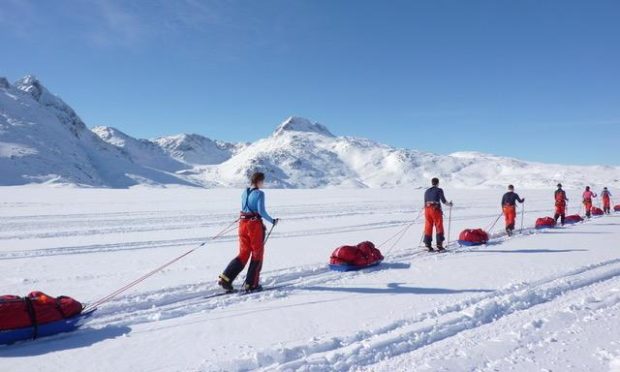It has been noted that global warming scepticism in some UK newspapers is calming down, shriller voices now muted. This is not thought to be in response to the Arctic icecap melting.
Commentators instead attribute the apparent climatic change within the Tory press to something else. Evidence of 10 Downing Street seeking support for the PM’s “10-point plan for a green industrial revolution which will create and support up to 250,000 British jobs’’.
This was announced in November. But months earlier, some perhaps rather unexpected players joined the fight to save the planet. Brewdog, the internationally successful producer of craft beers which began life in a rented building in Fraserburgh, was one.
Its owners said that after meeting Sir David Attenborough and undertaking research, they became convinced they had to do more.
Last summer, the company announced it had purchased more than 2,000 acres of land north of Loch Lomond, currently used for grazing. Here it plans to create 1,500 acres of broadleaf native woodland.
“Over the next few years, we will plant over one million trees. Restored peatlands are highly effective for CO2 sequestration, which is why we are dedicating 550 acres to peatland restoration…” There will also be a sustainable campsite in the Brewdog Forest. A rare example of a brewery organising a pitch-up.
More recently there has been speculation that Brewdog had also acquired the 9,309-acre Kinrara Estate near Aviemore. When asked for this column whether it was true and what was planned, the company said “…we won’t be giving comment at this time”.
A non-denial is often taken as confirmation in the media. At any rate, marketing material for Kinrara highlighted certain things that would appear to fit Brewdog’s environmental strategy: “Considerable afforestation and potentially valuable carbon capture opportunity. Great conservation potential, 400 acres low ground with productive pasture, existing forestry and further planting opportunity.”
It is interesting these details are now seen as selling points, along with information traditionally associated with estate sales – grouse moor and red deer averages; pheasant shooting and roe deer stalking; and salmon fishing.
Green opportunities are now attractive marketing tools. They mean new estate owners can tap into the significant public money available to help the drive to a zero-carbon economy. The Scottish Government is committed to investing half a billion pounds in tree planting and peatland restoration over the next 10 years.
It has also been noticeable that those campaigning for the rewilding of Scotland are now laying greater store by the contribution their goals could make to the fight against climate change.
Where once they were seen as a few eccentrics pursuing the return of the wolf and the lynx to Scotland, they are seeking recognition as significant players in the drive towards a zero-carbon economy.
There is already serious money behind this, not least that of Scotland’s largest private landowners, Danish billionaires Anders Holch Povlsen and his wife Anne, who own more than 220,000 acres in the Highlands.
While every contribution to the mitigation of global warming should be applauded, the impact on the price of Highland land could prove a matter of concern. With more land being bought by private or corporate parties of good green intent, prices are likely to rise.
The aspirations of communities to take control of their land could be frustrated as the Scottish Land Fund’s resources become increasingly stretched.
Ministers should remember their commitment to growing an inclusive, net-zero economy is founded on a “Just Transition”. A commission has been established to ensure principles of a Just Transition are built into the process.
These include helping address inequality and poverty, and ensuring transition does not negatively affect the current workforce and overall economy.
Would these principles really be respected if the bulk of public money available to rural climate change projects goes to wealthy private landowners, however environmentally enlightened?
That would seem a likely outcome. The Scottish Government’s own estimates point to 57% of rural land being owned by large private landowners, with only 3% in community ownership.
Almost certainly, however, a far higher proportion of community owners have already launched green projects compared to their large private counterparts.
From the 800 hectares of broadleaf trees planted in Assynt and the hydro scheme up the road, to the award-winning integrated power system on Eigg, and the Dancing Ladies wind turbines on Gigha, they have long since proven their green credentials.
It would be wrong if the distribution of significant public funds unintentionally prevented other local communities from taking control of their land and making similar contributions in the future.
David Ross is a veteran Highland journalist and author of an acclaimed book about his three decades of reporting on the region
